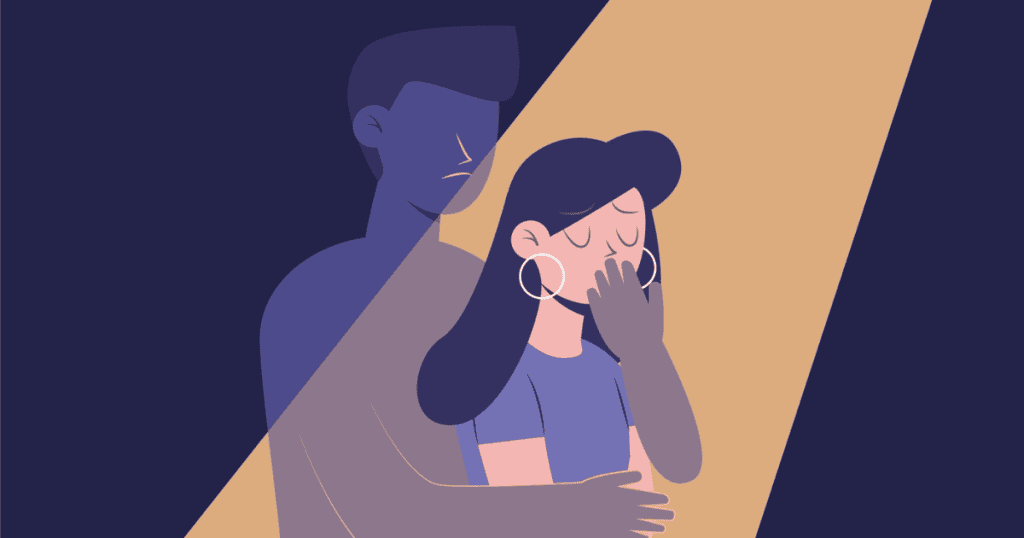Every single thing a narcissist does to show love comes with strings attached.
That’s the hard truth I wish someone had told me when I was younger, before I mistook control for care, intensity for intimacy, and chaos for chemistry.
There was a time I thought I had found the one.
He said all the right words and looked at me like I was the only woman in the world.
It was like living in a movie. Candlelit dinners, long text paragraphs, songs that suddenly “belonged” to us.
But months later, those same gestures became weapons.
“After everything I do for you,” he’d say, “you can’t even pick up the phone?”
The same man who once told me he adored my independence now accused me of being “too cold,” “too distant,” “too focused on work.”
What I once believed was love turned out to be manipulation.
It took losing myself and then finding a love that didn’t demand my identity as payment to understand the difference.
This isn’t just a story about heartbreak.
It’s about how narcissists perform love, and why what they show is never love at all, but control in disguise.
Table of Contents
The Mask of Love in the Beginning

Every narcissistic relationship begins with fireworks.
Not the slow-burning warmth of genuine connection, but the explosive kind that blinds you before it burns.
They study you with frightening precision and mirror your humor, your hobbies, even your wounds.
They make you feel seen as if they’ve reached into your chest and memorized your heartbeat.
There was one narcissistic man who told me, “It’s like you were made for me.”
I believed him because he acted like it.
He showed up with flowers, learned my coffee order after one date, and somehow remembered that I loved rainy afternoons and mint ice cream.
But narcissists don’t love you. They “become” you.
Every compliment, every gift, every “you’re different from the rest” was part of the hook.
It wasn’t affection. It was a strategy.
In this stage, they:
- Shower you with affection and gifts that make you feel chosen.
- Mirror your values and passions to seem like your perfect match.
- Offer exclusivity too soon (“I don’t want to share you with anyone”).
- Share “vulnerabilities” that are often rehearsed or exaggerated.
- Move fast, declaring love before real trust has formed.
It’s called lovebombing, and it’s one of the most powerful manipulation tools there is.
It floods your brain with dopamine, creating a bond that feels chemical, addictive, even.
I remember sitting on the hood of his car one night under the stars.
He looked at me and said, “You’re the first person who ever made me feel safe.”
My heart melted.
Now, I recognize that moment for what it was: the setup.
Because soon, I’d spend the next year trying to keep him feeling “safe” even at the cost of my own peace.
The Shift Toward Control

Slowly, the tone changes.
The laughter fades first. Then come the subtle insults, the ones that make you second-guess whether you’re imagining it.
He starts asking who you’re texting, why you didn’t answer sooner, or why your coworker “smiles at you that way.”
At first, it feels flattering, like he cares so much.
But love doesn’t surveil you. It doesn’t require proof of loyalty.
I remember the first time I canceled brunch with my best friend because he said, “I just miss you when you’re gone.”
It sounded sweet. But months later, I realized I hadn’t seen my friends in half a year.
My world had quietly shrunk until it revolved entirely around him.
This is where affection turns into possession.
The control phase looks like this:
- Jealousy disguised as passion.
- Guilt whenever you set boundaries.
- “Concern” that’s really surveillance, like checking your phone or social media.
- Subtle isolation: “They don’t really get us,” or “Your mom doesn’t like me.”
- Emotional dependence, which is when you start to need their approval just to feel okay.
One night, my narcissistic ex came home from work and found him sitting on my doorstep.
“I just wanted to make sure you were safe,” he said. But there was no warmth in his eyes, only accusation.
I remember apologizing even though I’d done nothing wrong.
That’s how control begins. Quietly, wrapped in care.
And because you still remember the charming version of him, you keep hoping that that man will come back.
The Turn Into Abuse

Eventually, the mask shatters.
The “loving” man you fell for begins to mock you, belittle you, and blame you for his moods.
You start walking on eggshells, censoring your tone, your laughter, even your silence.
That’s when psychological abuse replaces love.
I once forgot to reply to a message while I was in a meeting.
When I checked my phone, I had ten missed calls and a text that read: “You’re just like the rest. You don’t care about anyone but yourself.”
The next morning, he showed up with flowers. “I just get scared you’ll leave me,” he said.
I felt guilty instead of angry.
That’s what narcissists do. They twist cruelty into a plea for sympathy.
This stage includes:
- Gaslighting: “You’re overreacting,” “That never happened,” or “You’re too sensitive.”
- Projection: Accusing you of cheating when they’re the ones being unfaithful.
- Emotional withdrawal: The silent treatment as punishment.
- Triangulation: Bringing in a third person (“My ex never acted like this”) to make you compete for validation.
- Explosive anger: Shouting, threats, or unpredictable rage meant to keep you on edge.
I remember crying quietly in the bathroom, trying not to make a sound.
The person who once said I was “the love of his life” had become someone who treated my pain as entertainment.
When you’re in it, you rationalize it.
You say things like, “He’s just stressed” or “He didn’t mean it.”
But that’s the trap.
You start confusing chaos for love because it’s the only version of “connection” you’ve been conditioned to recognize.
The Cycle of Cruelty

Then, when you finally reach your breaking point, when you’re ready to walk, he changes again.
Suddenly, the tears come. The apologies. The soft voice. He says, “I know I’ve hurt you, but I can’t live without you.”
He swears he’ll go to therapy, he’ll change, he’ll be better.
And for a moment, you want to believe him.
This is the hoovering phase, named after the vacuum, because they pull you right back in.
I once got a message from a former narcissistic partner months after leaving.
It said, “No one has ever made me feel so alive. You’re the one that got away,” which reopened months of healing in an instant.
That’s how powerful trauma bonds are. They make you crave the same person who destroyed your peace.
The cycle looks like this:
- Devaluation: They treat you as worthless.
- Discard: They leave emotionally or physically, leaving you shattered.
- Hoovering: They reappear with affection and fake remorse.
Each repetition deepens the dependency.
You start craving the “high” of their validation after enduring their cruelty.
It’s psychological warfare disguised as romance.
It took me years to realize that love doesn’t require you to suffer for it.
The Truth Behind Their “Love”

What narcissists call love is not love. It’s ownership.
They don’t love who you are. They love how you make them feel.
You’re not a partner. You’re a mirror, reflecting their inflated sense of self.
When I finally stepped away from those toxic relationships, I was terrified I’d never feel passion again.
But then, I met my husband.
He wasn’t loud about his affection. He didn’t promise the world.
He simply showed up for me, consistently, quietly, and loves me without conditions.
One morning, early in our relationship, I spilled coffee on his favorite shirt.
I panicked, waiting for the anger I’d been trained to expect. Instead, he just laughed and said, “It’s just fabric.”
That’s when I realized that real love doesn’t keep score.
It doesn’t punish you for mistakes nor make you feel anxious, small, or disposable.
Real love feels like:
- Consistency, not chaos.
- Safety, not surveillance.
- Accountability, not blame.
- Peace, not adrenaline.
Narcissistic love conditions you: “You’re lovable only when you serve me.”
Healthy love frees you: “You’re lovable because you exist.”
I learned that love isn’t grand gestures or poetic intensity.
It’s a quiet loyalty.
It’s peace on a Tuesday morning, not fireworks on a Friday night.
Walking Away From the Chains Narcissists Call Love

Leaving a narcissist is not just leaving a person. It’s reclaiming your reality.
When you walk away, you’re walking away from a performance.
You’re choosing yourself, your peace, your clarity, your future.
There will be moments when you miss them because your brain has become addicted to the highs and lows.
Be patient with yourself.
Healing from narcissistic abuse isn’t linear. It’s like learning to breathe again after living underwater.
Today, I wake up beside a man who doesn’t make me earn love through suffering.
My husband never tries to “fix” me, never weaponizes my past, never punishes me for my independence.
He’s the kind of man who says, “You can go chase your dreams. I’ll be cheering from the sidelines.”
It’s in those small, steady moments that I realize I didn’t lose love when I left the narcissists.
I finally found it.
To every woman reading this who’s rebuilding herself after years of manipulation, you are not broken. You are simply waking up from a spell.
And when you do, you’ll see clearly what you couldn’t before.
Narcissists don’t show love. They show you the chains they plan to trap you with.
Related post:
- The Narcissist’s Dating Strategy: Why They Target Women Who ‘Have Their Lives Together’?
- Why Your Narcissistic Ex Keeps Tabs on Your Love Life (And What It Really Says About Them)?
- Why Dating a Narcissist Was the Best & Worst Thing That Ever Happened to Me?
- 5 Dating Rules I Created After Narcissistic Abuse (That Filter Out Toxic Men Like a Strainer)
- Why I Stopped Dating For One Year After My Narcissistic Relationship (And Why It Worked Out So Beautifully)


